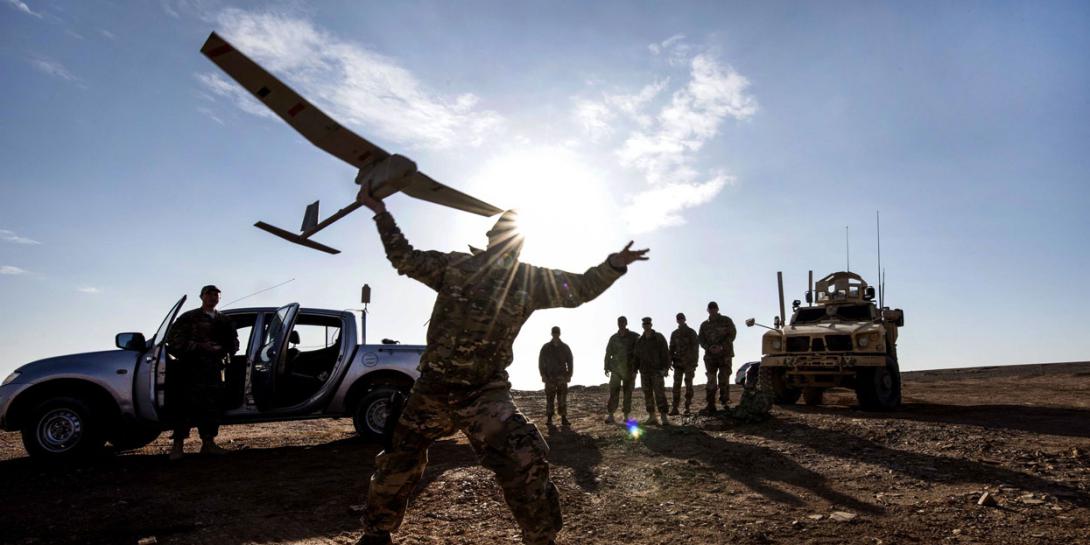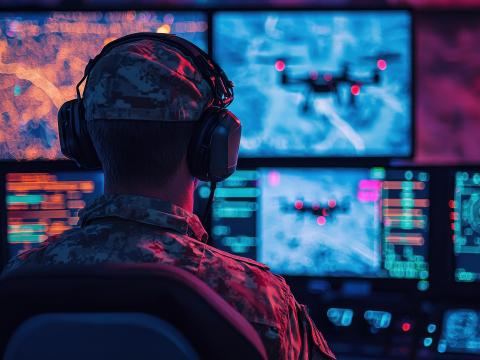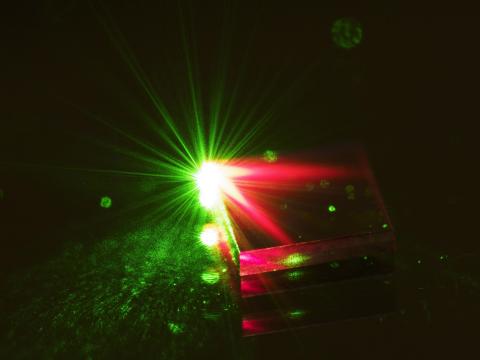Potential Drone Operators Get to Play Games
The rapid increase in the use of unmanned vehicles has created a demand for the U.S. Navy to find talented drone operators. Typically, the Navy has assigned aviators to operate drones, but this has taken away from their traditional aviation assignments, according to an article from Warren Duffie of Office of Naval Research (ONR) Corporate Strategic Communications.
Now the Navy is trying something new to identify operators: video game playing. Under an ONR-sponsored effort called StealthAdapt, the Naval Aerospace Medical Institute and Tampa, Florida-based software company Adaptive Immersion Technologies are developing a video game to identify the warfighters that have the skills needed to operate unmanned vehicles.
"The Navy currently doesn't have a test like this to predict who might excel as unmanned vehicle operators," said Lt. Cmdr. Peter Walker, USN, program officer, Warfighter Performance Department, ONR. "This fast-paced, realistic computer simulation of unmanned vehicle missions could be an effective recruitment tool."
As part of StealthAdapt, the Navy will use a cognitive exam—the video game—along with a personality assessment and biographical history assessment to evaluate unmanned vehicle operators. During the cognitive exam, warfighters will play a search-and-rescue mission video game, trying to rescue as many stranded friendly forces as possible, within a pre-set time limit, while avoiding fire from adversaries, Duffie reported.
“If that's not stressful enough, players must simultaneously monitor chat-based communications, make sure they have enough fuel and battery power to complete missions, memorize and enter authentication codes required for safe rescue of friendlies, decode encrypted information and maintain situational awareness,” the article stated.
Testing to see how well warfighters respond under pressure is an important part of the evaluation, according to Phillip Mangos, president and chief scientist at Adaptive Immersion Technologies. “We're looking for attention to detail, the ability to multitask and prioritize, and a talent for strategic planning-thinking 10 moves ahead of your adversary," he said.
Mangos and his research team will take data and results gained from the participation last year of 400 StealthAdapt civilian and military research participants at various Navy and Air Force training centers, Duffie noted. After it is fully designed, the video game will be validated by prospective Navy and Air Force unmanned operators and be ready for fleet implementation later this year.
Other services already have processes in place. For the Marines, soldiers can enter a designated an unmanned aviation systems career path. The Air Force also has its own formal screening process for remotely piloted aircraft operators, Duffie reported.





Comments